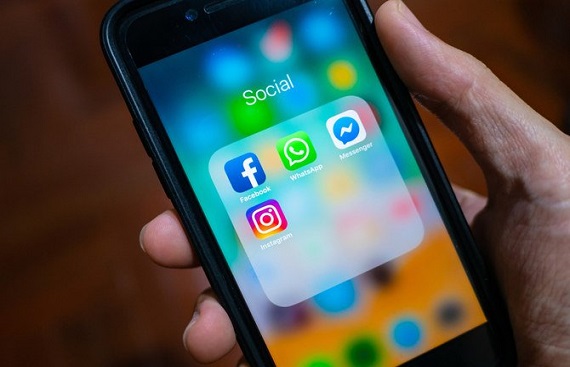Why Facebook, WhatsApp, and Instagram do faced technical blackouts?

The most prominent social media platforms around the world, WhatsApp, Instagram, and Facebook, all owned by Facebook, were down for nearly six hours, which dropped netizens across the globe worried and infuriated all over the night. Most people relied on applications such as Twitter and Telegram throughout this global social media outage, which began to post 10 pm on October 4 and lasted till the early hours of October 5. Jokes were hurled about some of the reasons behind the social media outrage, but there was no clarity as to why it occurred and why the applications were down for such a long time.
While Instagram, WhatsApp, and Facebook continued to stay down for nearly six hours, which is one of the most extended outages in the company's history, several small businesses suffered while e-commerce slowed down significantly. People were lacking essential connections and had to turn towards other applications.
Apologizes claimed!
![]()
Apologizing for the trouble in Facebook, Whatsapp, and Instagram services, tech giant's CEO Mark Zuckerberg said that services are returning online. Zuckerberg also said in a Facebook post - "Sorry for the disturbance today - I know how much you rely on our services to stay connected with the people you care about”.
WhatsApp tweeted: "Regrets to everyone who hasn't been able to use WhatsApp. Thank you so much for your patience. We will continue to keep you updated when we have more information to share."
According to Sputnik, users began reporting that Instagram, WhatsApp, and other services under the Facebook corporate umbrella are now working as usual.
What is the reason for outage?
Facebook's explanation was a little more technical, which stated, "Configuration changes on the backbone routers that co-ordinate network traffic between the data centres caused issues that interrupted this communication." This had a "cascading effect bringing services to a halt." Due to this internet breaks down into hundreds of thousands of networks. Big firms like Facebook have their own more extensive networks - known as autonomous systems. When you want to visit Facebook or Instagram, or WhatsApp, the back-end system that allows computers to connect with their network uses the Border Gateway Protocol (BGP) - a kind of postal service for the internet.
The internet is a chain of massive networks known as independent systems. The Border Gateway Protocol is used to route information from these massive networks to the rest of the internet. It is a way for these autonomous systems to transfer routing information between each other. In a nutshell, Facebook's systems stopped talking to the broader internet. It looked as if someone had pulled the cables from their data centers all at once and disconnected them from the internet, explained web infrastructure firm Cloud flare.
The Verge explains BGP as being maps of autonomous systems that they share with others. “Imagine BGP as a group of people creating and updating maps that tell you how to get to YouTube or Facebook,” The Verge said, “These so-called maps are continually changing, just like the internet”.
Did the outage leave Facebook in losses?
Conceivably, the biggest concern for Facebook itself would have been its impact on its revenue and stock price. The shutdown meant ads weren't running for over six hours across its platforms. According to some, the outage could have wiped as much as $6bn (£4.4bn) from Zuckerberg's personal wealth, with its shares dropping nearly 5%.
Others estimate that the loss of income to the company could amount to more than $60m. And this blow to Facebook's reputation comes at a difficult time. A whistle-blower responsible for leaking many internal documents takes the stand at a US Senate hearing today.
It is also under scrutiny from controls around the world who have questioned whether it's reacting appropriately to issues such as misinformation, hate speech, and handling user data, or whether - as the whistle-blower says - it's putting "growth over safety”. Now its technical abilities are also in question.
Is user data safe?
Facebook has stressed in its blog post that its engineers have pinpointed the main cause of the issue to a faulty configuration change and that it has no evidence at this time that user data was in any way compromised as a result of the downtime. Experts too said they have not found any evidence of foul play or hacking that could have led to Facebook’s services going offline on Monday.
“We want to make clear at this time that we believe the root cause of this outage was a faulty configuration change. We also have no evidence that user data was compromised as a result of this downtime,” Facebook said in its blogpost.
